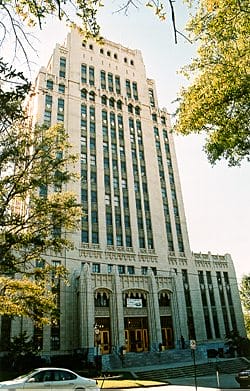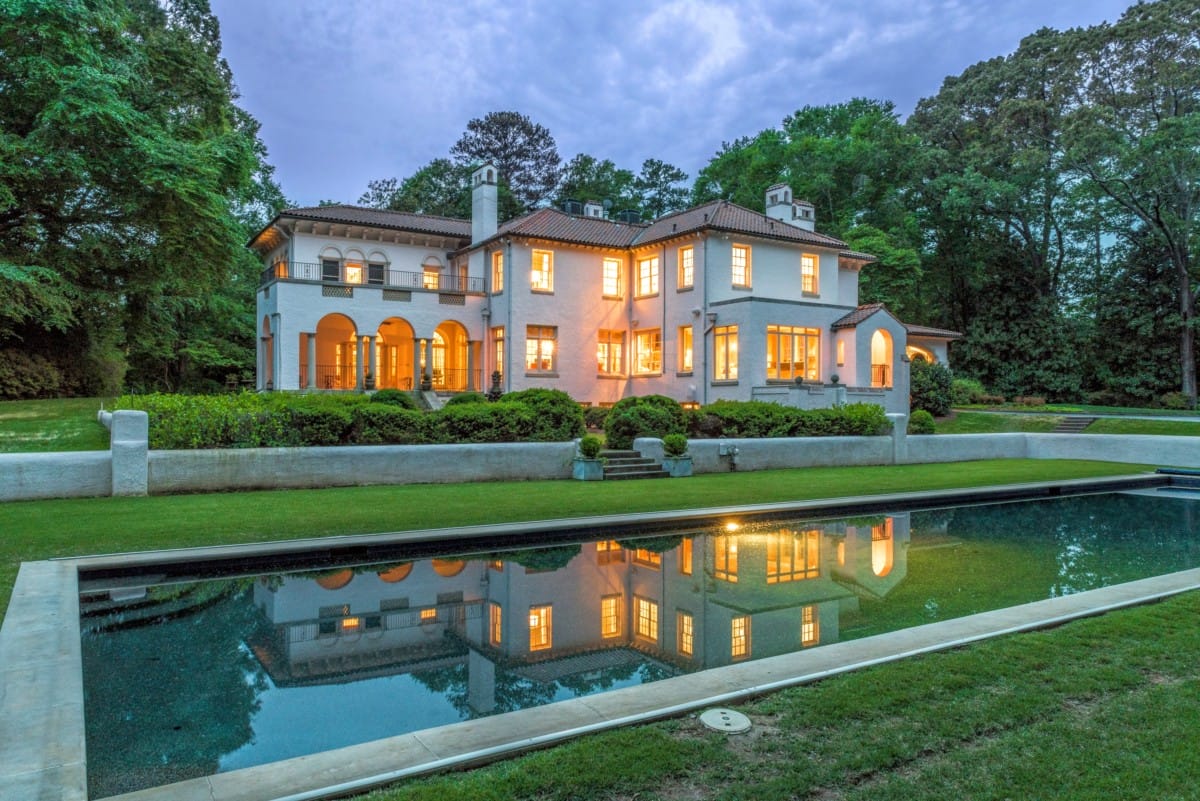
On June 5, 2017, Atlanta City Council members voted unanimously on a moratorium introduced by Mary Norwood to place further restrictions on new construction in Buckhead’s Tuxedo Park neighborhood where Norwood is a resident. While the news set our community buzzing, we turned to local experts to understand if this is an attempt to legislate taste, a needed protection, or an attempt to gather votes for the upcoming mayor’s race?
Carmie McDonald, Executive Director of The Buckhead Heritage Society, says it’s important to keep in mind that the legislation introduced by councilmembers Mary Norwood, Andre Dickens and Michael Julian Bond is not a true moratorium on building in the Tuxedo Park neighborhood, rather, an ordinance to “place interim controls on demolition and new construction on single-family residential structures” in the neighborhood.
For residents waiting to start a new build, there is still hope. According to the ordinance, applications for new construction will be considered if “the proposed single-family residential structure shall be no larger (in floor area) than the largest single-family residential structure on either side of the street for the entire block length or taller than the tallest single-family residential structure on either side of the street for the entire block length.”
The ordinance can be read in its entirety HERE.
“Like many historic neighborhoods in Buckhead, Tuxedo Park is facing development pressures associated with our city’s rapid growth. However, unlike some historic neighborhoods, Tuxedo Park has had no local controls to protect individual homes from demolition and the neighborhood from incompatible new development,” said McDonald. “The temporary measures provided in the June 5 ordinance will allow local leaders to explore options for enacting more permanent design control measures in the future.”

The City of Atlanta’s Historic Preservation Ordinance only protects one Buckhead district, Brookwood Hills. However, the ordinance does not protect existing historic buildings from demolition unless the proposed new construction is deemed incompatible by the Director of the City of Atlanta Office of Zoning and Development based on size and height guidelines listed above. The ordinance does provide temporary protection of the neighborhood’s building scale, meaning that remaining historic structures will not be overshadowed.
McDonald offers a positive perspective on the new legislation by pointing out that this move will go a long way in honoring Buckhead’s history. “This ordinance is a positive first step towards developing a culture of respect for the irreplaceable historic neighborhoods that define Buckhead. Once demolished, these resources are lost forever, along with the community history they embody. Speaking on behalf of The Buckhead Heritage Society, whose mission is to preserve and promote the history of Buckhead, we would like to see more done to preserve the integrity of the community’s diminishing historic resources,” said McDonald.
When the news hit, many local residents wondered about the legality of such a decision. Carl Westmoreland, a real estate attorney at Morris, Manning & Martin, shed light on the laws surrounding moratoriums.
“In Georgia, moratoriums are legal if they are of a reasonable duration and advance a legitimate government purpose. As is common, the Tuxedo Park moratorium is for 180 days or until a new “development control ordinance” is enacted,” said Westmoreland. “The enactment process takes at least ninety days and, as of the end of last week, no new ordinance had been proposed. The moratorium is ostensibly intended to address building size and excessive tree removal.”
Westmoreland also noted the historical context of the moratorium. “This moratorium is unusual in that it only applies to one neighborhood in the city. It’s closest antecedent is the effort to designate the Tuxedo Park neighborhood a historic district some years ago, which was withdrawn in the face of substantial community opposition. That ordinance would have required Urban Design Commission review for any construction in the neighborhood and the sentiment eventually expressed was that Tuxedo Park was not a neighborhood which needed that degree of protection to remain viable and that its residents were not inclined to subject themselves to an additional level of governmental review in order to build anything.”
Westmoreland further noted that, “it certainly seems to me that the moratorium and its anticipated legislation will strike a similar chord because, while it may not require an additional level of approval, it will place additional limits on what owners can do on their land. I suspect that there are a lot of people in the neighborhood who dislike the construction of gargantuan houses which necessitate the removal of a great many trees. Whether those people are willing to subject their own property to more regulation as a remedy is another question. This seems to me much more about taste than trees and it will be interesting to see whether Tuxedo Park residents ultimately feel that the disease is worth the cure.”
Know anyone who has been affected by the moratorium? What are your thoughts? Comment below.